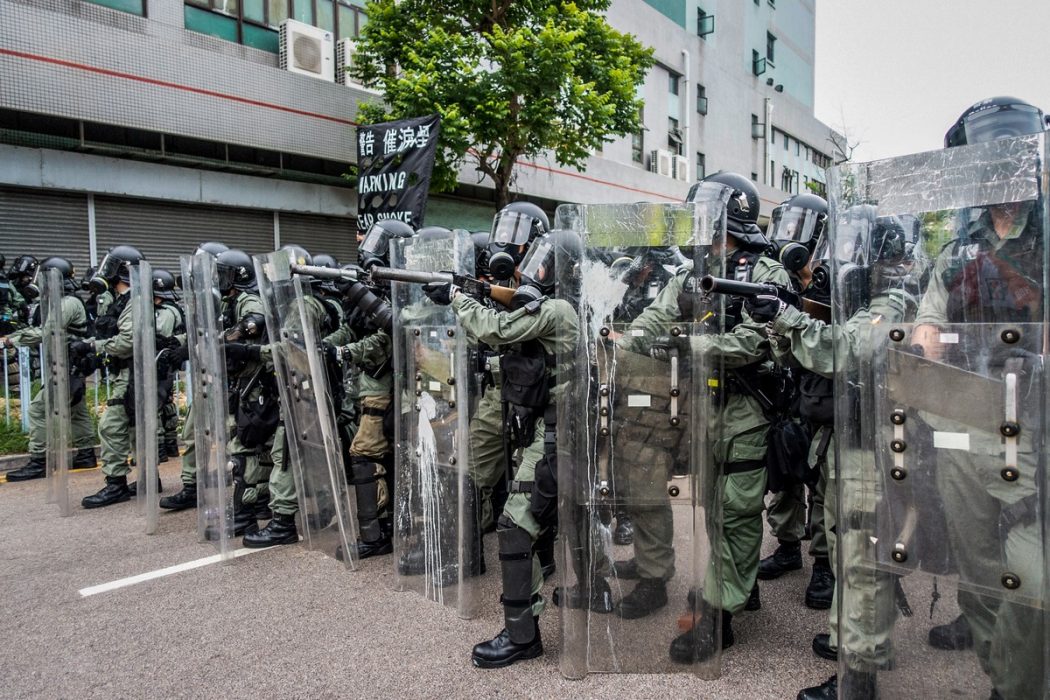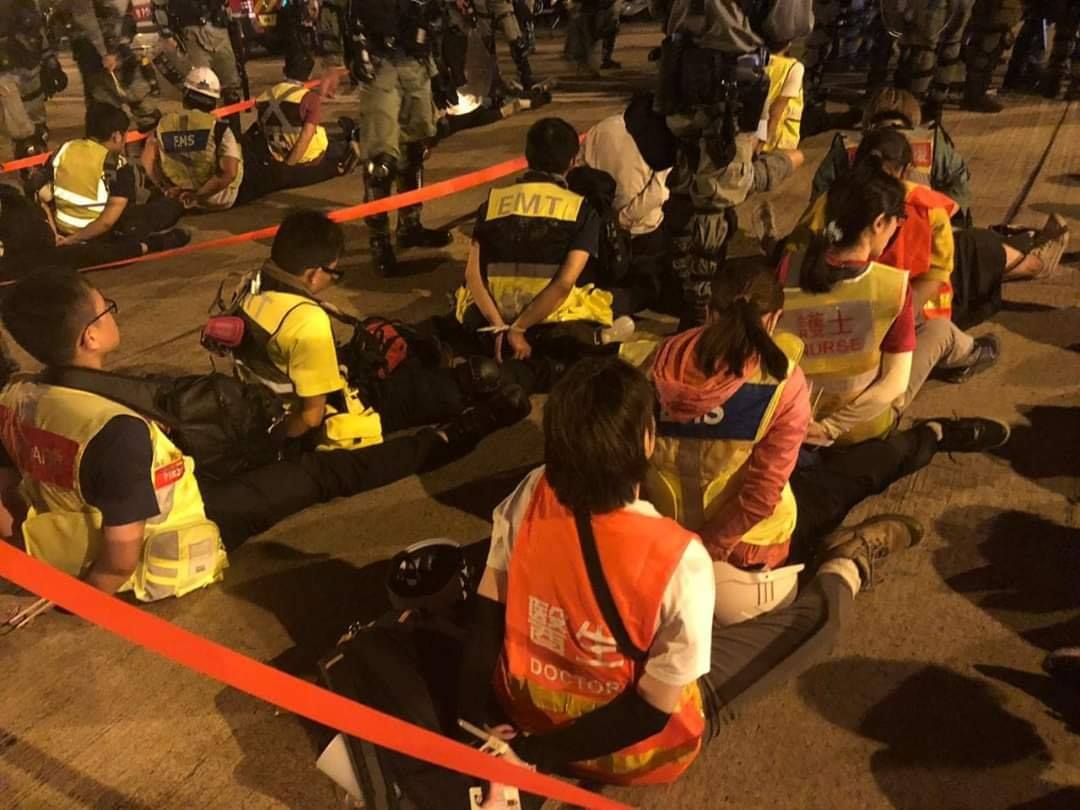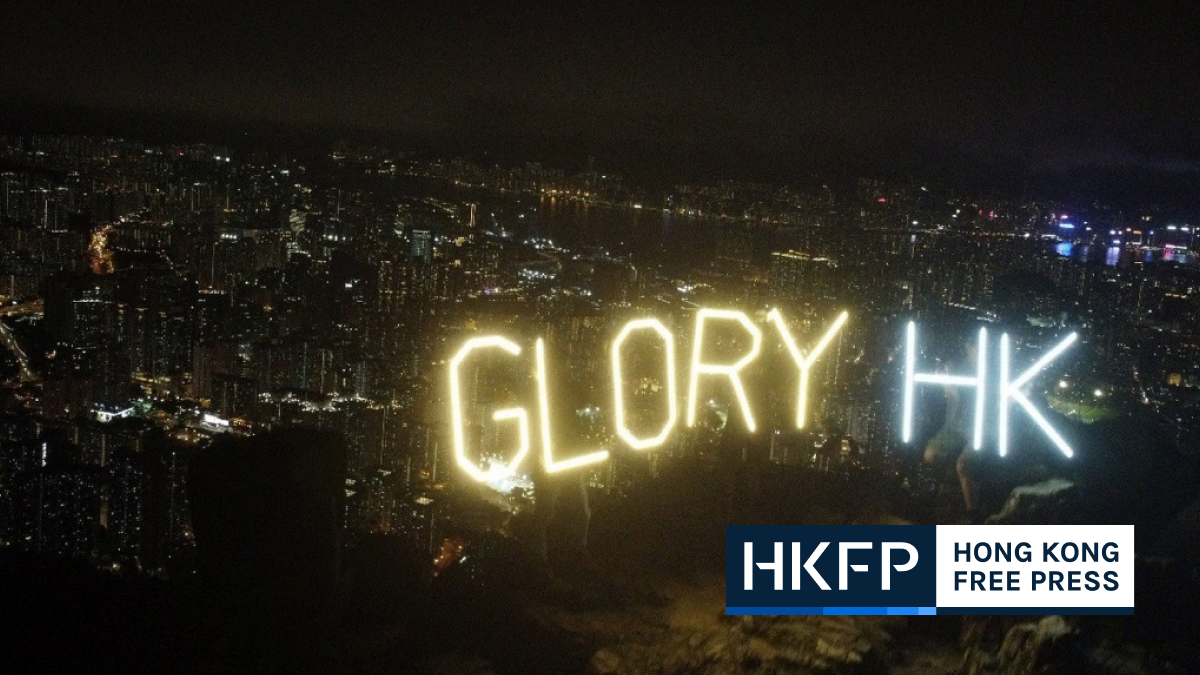The UK has announced it will be temporarily halting its military training arrangement with the Hong Kong Police Force, citing the coronavirus pandemic.
According to the Observer, the Guardian‘s Sunday paper, the UK will be re-evaluating its military training contracts with the city’s force after the pandemic: “In light of coronavirus restrictions, all training with personnel from Hong Kong has been paused. It will be re-evaluated when restrictions are lifted,” a spokesperson for the UK’s Ministry of Defence said.

The Ministry also mentioned Westminster’s concerns over the effect of Hong Kong’s national security law on the city’s freedoms: “The UK government has been clear that the enactment and imposition by China of national security legislation for Hong Kong constitutes a breach of the Sino-British Joint Declaration, directly threatening the rights and freedoms of those in Hong Kong.”
The ban also puts a halt to training arrangements between the Royal Air Force and Hong Kong’s Government Flying Services.

The overseas military training programme formed part of a strategic exchange program for officers of the Hong Kong Police Force: “It aims to broaden officers’ horizons and provide diversified experiences and exchange opportunities for personnel,” a police spokesperson told HKFP in an emailed statement on Monday.
Similar training arrangements with mainland China have also been suspended, the spokesperson said: “In light of the global pandemic, after accessing factors such as the risk of infection and the responsibility of mobilising human resources, police have proactively suspended sending personnel to the mainland and abroad for training. The relevant arrangement will be reviewed in due course.”
In June 2020, Beijing inserted national security legislation directly into Hong Kong’s mini-constitution – bypassing the local legislature – following a year of pro-democracy protests and unrest. It criminalised subversion, secession, collusion with foreign forces and terrorist acts, which were broadly defined to include disruption to transport and other infrastructure. The move gave police sweeping new powers, alarming democrats, civil society groups and trade partners, as such laws have been used broadly to silence and punish dissidents in China. However, the authorities say it has restored stability and peace to the city.
Souring relations
The UK’s decision comes at a time of souring relations between China and the West.
Earlier this month, the All-Party Parliamentary Group published a report investigating the alleged abuse of journalists and medics by police during the pro-democracy protests last year. A coalition of activists in the UK has also started raising funds for private legal action against British members of the force.

Late last month, foreign secretary Dominic Raab announced that the UK will suspend its exports of military equipment to Hong Kong, citing the lack of judicial safeguards under the national security law. Activists have also called for UK sanctions on Hong Kong officials responsible for facilitating alleged police brutality and the implementation of the national security law.
Support HKFP | Policies & Ethics | Error/typo? | Contact Us | Newsletter | Transparency & Annual Report | Apps
Help safeguard press freedom & keep HKFP free for all readers by supporting our team
























